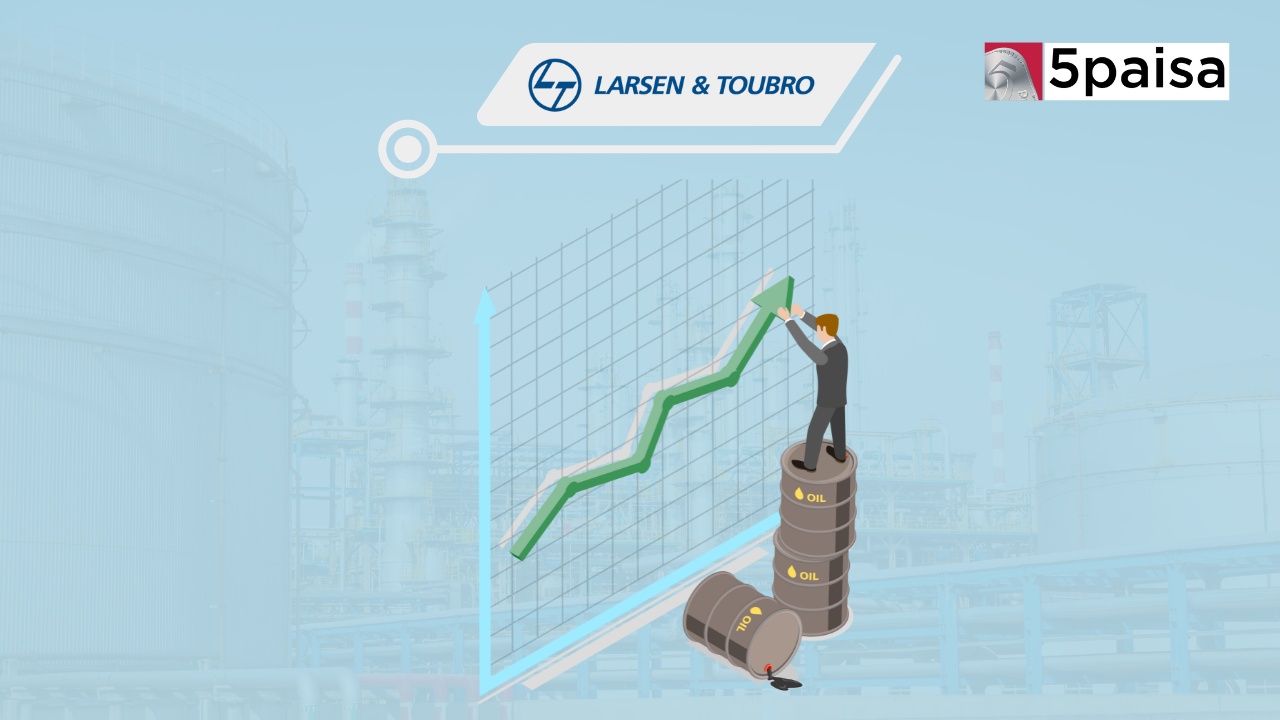L&T Eyes $50-$60 Billion Projects by FY25, Plans Major O2C Investments
Implications of the recent Gujarat Governement order on PSU dividends

Last Updated: 27th April 2023 - 01:13 pm
Gujarat is known to have a long history of stock market investing and one must not be surprised to find that Gujarat is almost the first language of people trading on the Bombay Stock Exchange (BSE). The Gujarati businessmen are known for their enormous risk taking capacity and for their financial savvy. It is not surprising that some of the biggest business houses in India like the Reliance group, Adani group, Arvind group, Wipro and the Kotak Group are all owned by businessmen from Gujarat. But, the latest stock market salvo was not fired by an entrepreneur from Gujarat but from the state government of Gujarat. It has made it mandatory for state government owned companies to be more liberal in paying dividends and bonuses to reward shareholders.
How Gujarat Companies rallied on 26th April 2023
We will talk about the stock market effect first and then get down to the nuances of the announcement. For instance, some of the major companies with ownership of the Gujarat government saw a frenetic rally. Check the table below.
|
Company Name |
CMP – 26 Apr |
CMP 25-Apr |
1-day Returns |
|
Gujarat Gas |
Rs463.40 |
Rs458.75 |
+1.01% |
|
Gujarat State Petronet |
Rs284.60 |
Rs265.60 |
+7.15% |
|
GNFC Ltd |
Rs587.00 |
Rs531.00 |
+10.55% |
|
GSFC Ltd |
Rs153.30 |
Rs127.80 |
+19.95% |
|
Gujarat Alkalis & Chemicals |
Rs733.50 |
Rs625.80 |
+17.21% |
|
GMDC Ltd |
Rs159.70 |
Rs133.10 |
+19.98% |
|
GIPCL Ltd |
Rs91.10 |
Rs75.95 |
+19.95% |
Data Source: NSE
Clearly, there is something cooking in the Gujarat government owned stocks. The only tepid mover was Gujarat Gas, which rallied by 1.01%. Three of the seven stocks were on 20% circuit, while the other three were up between 7% and 17%. So, what exactly has triggered this frenetic rally in the Gujarat government owned stocks?
Key regulations announced by the government of Gujarat
Here is a gist of the key regulations announced by the state of Gujarat pertaining to the state owned companies. Remember, these pertain only to government companies that are owned by the state government of Gujarat and other states are yet to make any similar announcements. But, first let us look at the key announcements made.
-
Broadly, the government of Gujarat has, in its latest regulations, mandated minimum requirements for dividends, issue of bonus shares, buybacks and share split for the state PSUs. This would be applicable to PSUs of the Gujarat government.
-
Under the new rules, the state owned PSUs have to offer minimum dividend of 30% of profit after tax (PAT) or 5% of the net worth, whichever is higher. Here, it must be remembered that such rules already exist for central PSEs and now it would also be applicable to state owned PSUs in the state of Gujarat.
-
There are also rules that have been put out for mandatory buybacks. Every state PSU have a minimum net worth of Rs2,000 crore and cash and cash equivalents of Rs1,000 crore will have to exercise the option of buyback of its own shares. In short, the government wants these state owned companies to use the cash for buybacks.
-
The state government of Gujarat has also put forth rules with respect to mandatory issue of bonus shares. Going ahead, state PSUs with defined reserves and surplus that are equal to or more than 10 times its paid-up equity share capital would be mandatorily required to issue bonus shares to shareholders by capitalizing such reserves.
-
Finally, the state government of Gujarat has also mandated rules for stock split or face value split by companies of the Gujarat government. Under this rule, the state owned PSUs of the Gujarat government are mandated to split the face value of their shares where the market price or book value of the shares exceeds 50 times its value. This is subject to the existing face value of the share being more than Rs1.
As per the circular issued by the Gujarat state government, these guidelines would apply to all corporate bodies where the government of Gujarat and the government-controlled body corporates have a controlling interest; which is defined as more than 51%. This will not only address the need for PSUs to restructure their capital but in terms of capital management, the state owned PSUs of Gujarat will now be at par with the central PSUs.
Which Gujarat companies would have to pay higher dividends?
Clearly, the enthusiasm was about companies paying higher dividends. Here are some sample of companies to be directly impacted by this announcement.
-
Take the case of Gujarat Gas. On an issued capital of 68.8 crore shares, the company has paid dividends of Rs2 per share or a total dividend pay out of Rs137.60 crore. As per the latest formula proposed by the Gujarat government, 30% of PAT comes to Rs386 crore. Hence, the company will have to raise its dividend by from Rs2.00 per share to Rs5.60 per share to meet the new criteria.
-
Take the case of Gujarat State Fertilizers Company (GSFC). On an issued capital of 39.85 crore shares, the company has paid dividends of Rs2.50 per share or a total dividend pay-out of Rs99.63 crore. As per the latest formula proposed by the Gujarat government, 5% of net worth comes to Rs583 crore. Hence, the company will have to raise its dividend by from Rs2.50 per share to Rs14.6 per share to meet the new criteria.
-
Finally, let us take the case of Gujarat Minerals Development Company (GMDC). On an issued capital of 31.80 crore shares, the company has paid dividends of Rs4.30 per share or a total dividend pay-out of Rs136.74 crore. As per the latest formula proposed by the Gujarat government, 5% of net worth comes to Rs236.50 crore. Hence, the company will have to raise its dividend by from Rs4.30 per share to Rs7.44 per share to meet the new criteria.
For instance, companies like GNFC and GSPL would be required to increase their dividend and also do a buyback of shares. All the companies qualify for issue of bonus shares, although such decisions have also to be ratified at the board meetings. However, the interesting point is that this has been the low hanging fruit for many state governments and it would not be too surprising to see more joining the fray.
- Flat ₹20 Brokerage
- Next-gen Trading
- Advance Charting
- Actionable Ideas
Trending on 5paisa
05
 Tanushree Jaiswal
Tanushree Jaiswal
Indian Market Related Articles
Disclaimer: Investment in securities market are subject to market risks, read all the related documents carefully before investing. For detailed disclaimer please Click here.
 5paisa Research Team
5paisa Research Team




